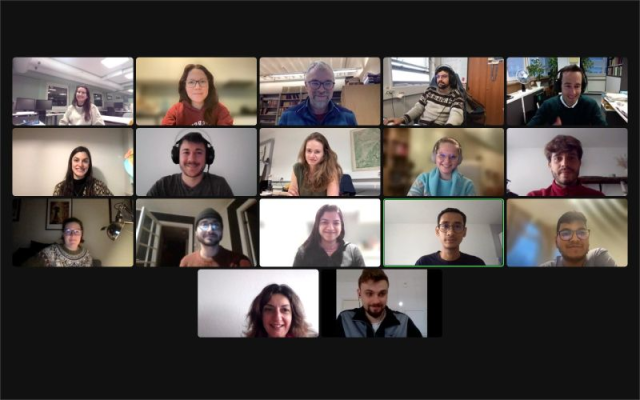Grant Writing Workshop Highlights Importance of Funding Schemes and Successful Strategies
13 Jan 2023

The recent Grant Writing Workshop, led by Sébastien Castelltort and Fritz Schlunegger, provided valuable insights into the world of academic funding and successful grant proposal writing. The workshop, held on 11 January online, attracted numerous early-career researchers eager to learn about securing grants for their future endeavors.
The morning session commenced with a comprehensive introduction to the academic career path. Participants were encouraged to actively pursue opportunities by engaging in grant writing, applying for positions, and constantly seeking out prospects aligned with their goals.
One of the key focuses of the workshop was the Swiss National Science Foundation (SNSF or SNF), which was presented as a prime example of a funding foundation. Attendees were provided with detailed information about the different funding schemes offered by the SNF, along with other European institutions briefly mentioned for reference.
The funding schemes at the SNF cater to various aspects of research and academic development. They include:
-
Project Funding: This scheme supports specific research projects with defined objectives and expected outcomes. Researchers submit proposals that undergo evaluation based on scientific merit, feasibility, and potential impact. The funding covers research materials, equipment, salaries, and other related expenses.
-
Career Funding: Geared towards early-career researchers or established researchers exploring new directions, this funding scheme offers opportunities such as postdoctoral fellowships, career development awards, and grants supporting researchers' salaries and expenses.
-
Programme Funding: This scheme aims to address significant scientific challenges by supporting research programs that involve interdisciplinary teams and establish long-term collaborations.
-
Infrastructure Funding: To facilitate scientific research, this funding scheme provides support for the development of essential research infrastructures, including laboratories, computing facilities, and specialized equipment.
-
Science Communication Funding: Recognizing the importance of public engagement and dissemination of research findings, this scheme offers grants for science outreach, education programs, science journalism, and other initiatives promoting a better understanding of science among the general public.
The afternoon session engaged participants in discussing successful project strategies based on their own group projects. To increase the chances of securing grants, the following key points were highlighted:
-Adherence to guidelines, evaluation criteria, and alignment of institutional values and goals.
-Crafting a polished CV highlighting achievements and contributions to science, emphasizing sustainability of the work.
-Emphasizing intellectual or disciplinary mobility as a positive aspect, alongside physical mobility.
-Developing a comprehensive career plan that includes a summary of achievements, explanation of the decision to pursue a PhD, personal and career development paths, and plans to contribute to the scientific community.
-Creating a well-structured research plan that outlines the project's objectives, proposed exploration, clear strategies, schedule, and budget.
-Writing a grant proposal that features a compelling title, clear research objectives, organized presentation, exhaustive state-of-the-art review, impactful figures, and a detailed budget.
-Displaying introspection, humility, and enthusiasm throughout the proposal.
-Ensuring feasibility of the research plan by consulting with senior advisors and collaborating with other scientists.
-Justifying the choice of host institution and establishing communication to determine project terms and cooperation possibilities.
Overall, the Grant Writing Workshop proved to be an invaluable resource for participants, equipping them with the knowledge and strategies necessary to navigate the complex world of grant applications. By honing their skills in proposal writing and understanding the various funding schemes available, early-career researchers are now better prepared to pursue their academic ambitions and contribute to scientific progress.



